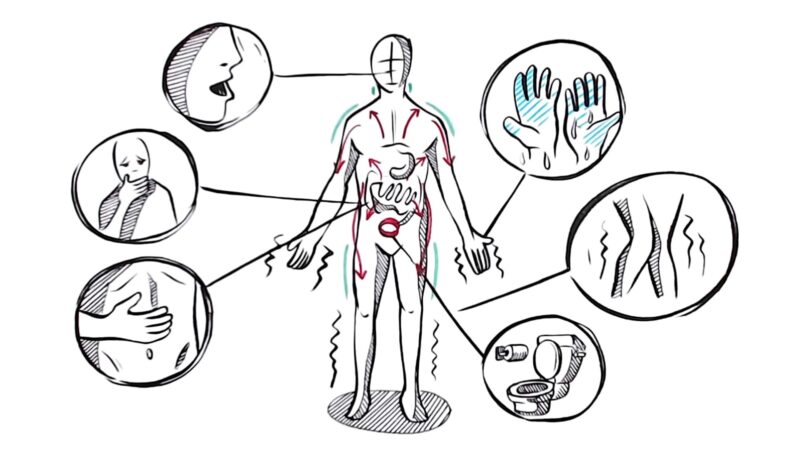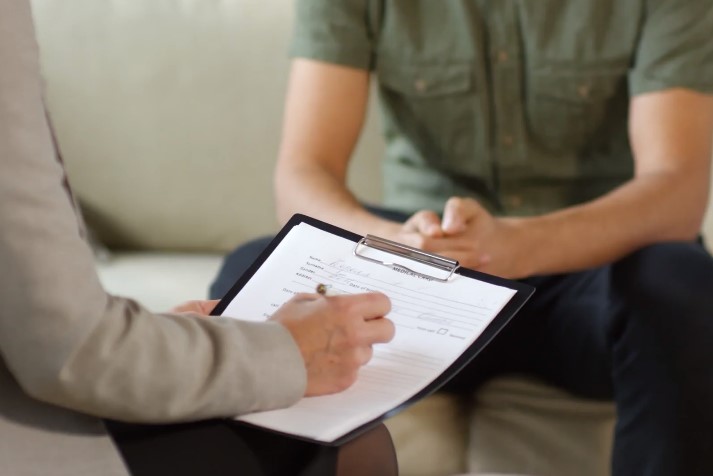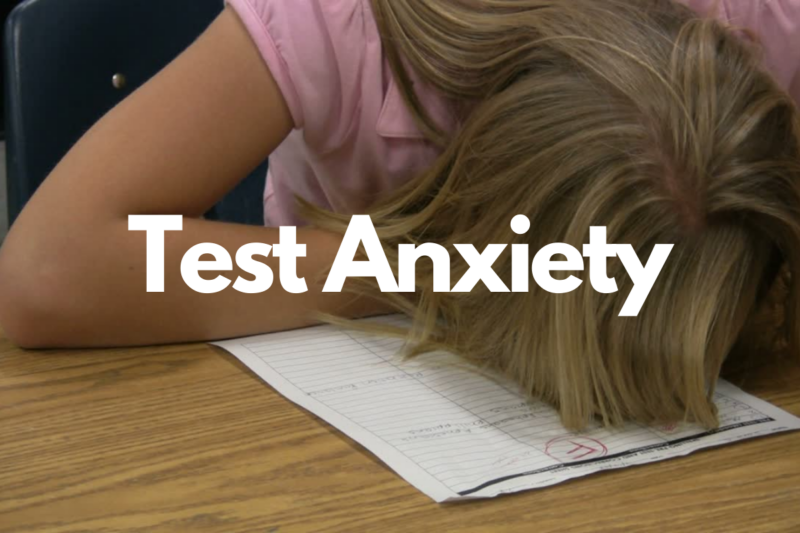Have you ever felt that knot in your stomach before a test? I know that feeling all too well. It’s like a mix of nervousness and unease that can make even the brightest minds stumble. But guess what? You’re not alone in this.
Many of us have experienced what’s called “test anxiety,” and I’m here to help you understand it better. Think of me as your friendly guide through this journey. We’ll unravel what test anxiety really is, why it happens, and most importantly, how you can manage it.
No judgments here – just understanding, care, and some practical tips to make those anxious moments a little more bearable. You’ve got this!
Definition and Basics

Test anxiety is a specialized form of performance anxiety. It’s characterized by an overwhelming sense of worry, nervousness, or unease about an imminent test or exam. This anxiety can take various forms, including physical symptoms like migraines, nausea, and an accelerated heartbeat.
On the emotional and cognitive front, individuals might experience feelings of impending doom, pervasive negative thoughts, and moments where they draw a blank during the test, even if they’ve studied the material thoroughly.
What are the Main Causes?

The origins of test anxiety are diverse and can vary from person to person. Some individuals might have had traumatic experiences with testing in the past, leading to a deeply ingrained fear of similar future events.
For others, the fear stems from the potential repercussions of not performing well, such as missing out on a coveted college spot or losing a scholarship. External factors, like societal expectations or parental pressures, can amplify these feelings, creating an environment where the individual feels as if their entire worth is determined by a single test score.
| Causes of Test Anxiety | Description |
|---|---|
| Fear of Failure | Pressure to meet expectations leads to anxiety about not performing well. |
| Perfectionism | Striving for perfection can create intense anxiety due to high self-imposed standards. |
| Lack of Preparation | Insufficient study time or understanding of the material causes feelings of unpreparedness. |
| Poor Test-Taking Skills | Inadequate strategies for exams result in self-doubt and anxiety during tests. |
| Negative Past Experiences | Previous failures contribute to a negative mindset and anxiety about future exams. |
| High Stakes | Exams with significant consequences amplify anxiety due to future impact. |
| Time Pressure | Exam time limits induce stress, affecting time management under pressure. |
| Social Comparison | Comparing oneself to peers triggers feelings of inadequacy and competitiveness. |
| Lack of Coping Strategies | Ineffective stress management skills make it hard to handle exam pressure. |
| Physiological Factors | Stress responses like rapid heart rate and sweating intensify anxiety. |
| Cognitive Distortions | Negative thought patterns exaggerate the consequences of failure, fueling anxiety. |
| Low Self-Esteem | Doubting abilities and fearing judgment heighten test-related anxiety. |
| Pressure from Parents or Peers | External expectations add stress and anxiety to perform well. |
| Test Format | Unfamiliar formats (e.g., multiple-choice questions) create discomfort and anxiety. |
| General Anxiety Disorder | Pre-existing anxiety tendencies exacerbate anxiety during test situations. |
Physical Symptoms
The body’s reaction to stress, including the stress from test anxiety, can be surprisingly intense. Recognizing these symptoms is pivotal in addressing and managing them.
The Fight or Flight Response

When confronted with a perceived threat, our bodies instinctively activate the “fight or flight” response. This evolutionary survival mechanism can lead to symptoms like:
- pounding heart
- parched mouth
- jittery limbs
While this response was invaluable for our ancestors when facing tangible dangers, it’s less beneficial when the “threat” is an exam paper filled with questions.
Common Physical Manifestations
Beyond the immediate fight or flight response, test anxiety can lead to a range of other physical symptoms. These might encompass:
- migraines
- stomach disturbances
- profuse sweating
- bouts of dizziness
For some individuals, these symptoms escalate to such an extent that they mirror those of a full-blown panic attack, making it nearly impossible to focus on the task at hand.
Emotional and Cognitive Effects
Test anxiety doesn’t solely manifest physically; it also profoundly impacts our emotional well-being and thought processes.
Negative Self-Talk

One of the most crippling aspects of test anxiety is the spiral of negative self-talk. Thoughts such as “I’m bound to fail” or “I’m just not cut out for this” can dominate the mind.
Over time, this persistent negative self-talk can erode an individual’s self-confidence, reinforcing the cycle of anxiety and making each subsequent testing experience even more daunting.
Feelings of Hopelessness
For some, test anxiety escalates to feelings of hopelessness or even helplessness. This emotional quagmire can make tasks like studying or concentrating seem insurmountable.
It becomes a self-perpetuating cycle: the more despondent one feels, the more intense the anxiety grows, further diminishing the likelihood of a positive outcome.
How to Overcome This Problem?
Test anxiety might seem tough, but it can be overcome. There are tried and tested strategies to help individuals navigate and perform at their peak.
Preparation and Study Techniques
Arguably, the most effective antidote to test anxiety is thorough preparation. This doesn’t merely imply last-minute cramming, but instead adopting effective, long-term study techniques.
Methods like spaced repetition, active recall, and employing mnemonic devices not only enhance retention but also bolster confidence, making the testing experience less intimidating.
Relaxation Techniques
Relaxation techniques, ranging from deep breathing exercises to progressive muscle relaxation and visualization, can be instrumental in calming both the mind and body. Regular practice of these techniques can train the body to relax on cue, diminishing the severity of anxiety symptoms when they arise.
Seeking Professional Help

For some individuals, test anxiety reaches such an intensity that professional intervention becomes essential.
When to Seek Help?
If test anxiety starts to overshadow daily life or causes profound distress, it’s a clear sign that professional help might be needed. This is especially true if an individual has attempted multiple self-help strategies without any discernible improvement or if they’re experiencing symptoms akin to a panic attack.
Therapeutic Interventions
Cognitive-behavioral therapy (CBT) stands out as one of the most effective treatments for test anxiety. Through CBT, individuals can learn to challenge and reframe negative thought patterns, cultivate coping strategies, and rebuild their self-confidence. In extreme cases, a psychiatrist might also prescribe medication to manage the most acute symptoms.
The Role of Educators and Parents

Educators and parents are in a unique position to support students as they grapple with test anxiety.
Recognizing the Signs
For educators and parents, being able to identify the signs of test anxiety is paramount. This involves looking beyond just the overt physical symptoms. Behavioral changes, such as a sudden aversion to school, procrastination, or a noticeable decline in academic performance, can all be red flags.
Offering Support
Support can manifest in myriad ways, from providing additional resources or dedicated study time to simply being a compassionate, listening ear. By fostering a nurturing and understanding environment, educators and parents can help students feel more secure, better equipping them to tackle their exams head-on.
The Future of Testing
Alternative Assessment Methods
Progressive educational institutions are now veering towards alternative assessment methods. These can include project-based evaluations, oral presentations, or even portfolio assessments.
Such methods provide a more rounded view of a student’s capabilities and can significantly reduce the stress associated with traditional timed exams.
The Move Towards Holistic Education
The educational landscape is gradually shifting towards a more holistic paradigm, where the emphasis is on holistic learning and personal growth rather than mere test scores.
By centering on the entire student experience, educators can foster an environment where test anxiety becomes less prevalent, and students are empowered to reach their full potential.
FAQs:
Can music or aromatherapy help ease test anxiety?
For some, soothing music or calming scents can create a more relaxed environment for studying and test-taking.
How important is a good night’s sleep in managing this problem?
Adequate sleep plays a crucial role in reducing stress and improving cognitive function, helping you handle test anxiety better.
Can peer support groups be beneficial for managing test anxiety?
Yes, talking to peers who understand your feelings can provide emotional support and useful tips.
Are there specific techniques to manage anxiety during online exams?
Applying the same relaxation and focus techniques as in traditional exams can help during online tests as well.
Is it possible to turn this into a positive motivator?
Yes, by reframing anxiety as a natural response and using it to sharpen focus and drive, you can harness it as a positive force.
The Bottom Line
In the end, remember that you’re not alone in this. Test anxiety is a common challenge, and many of us have faced that overwhelming feeling of self-doubt. But take heart, because just like others have triumphed over it, so can you.
Believe in yourself, take a deep breath, and know that with patience, self-care, and the right strategies, you can conquer test anxiety and shine bright on your academic path!
